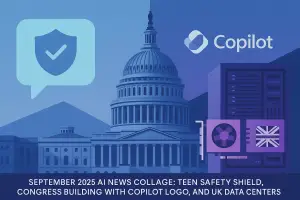Artificial intelligence is rapidly reshaping the movie industry, influencing everything from scriptwriting to post-production. Hollywood and global cinema are embracing AI to streamline workflows, generate creative content, and enhance audience experiences. But is this a cinematic revolution or a creative crisis? Let’s explore how AI is influencing filmmaking today.
1. AI in Scriptwriting: Creativity or Automation?
AI-driven tools like OpenAI’s ChatGPT and Google’s Bard are being used to generate story ideas, suggest dialogue, and even write entire scripts. Companies such as Scripta AI and DeepStory offer AI-powered screenwriting assistants that help writers craft plots, ensuring logical structure and engaging dialogue.
Examples of AI in Screenwriting:
- Warner Bros. has experimented with AI to analyze scripts and predict box office success.
- Sunspring (2016) was one of the first AI-written short films, created using an early version of OpenAI’s GPT.
- Netflix uses AI to analyze viewing trends and develop content that aligns with audience preferences.
2. AI-Powered Casting: Virtual Performers and Digital Doubles
AI is changing the way actors are cast and even replacing them with digital doubles. Deepfake technology allows filmmakers to recreate actors, modify performances, and even bring deceased stars back to the screen.
Examples:
- The Irishman (2019) used AI-powered de-aging technology on Robert De Niro, Al Pacino, and Joe Pesci.
- Rogue One: A Star Wars Story (2016) brought Peter Cushing back as Grand Moff Tarkin using CGI and deepfake techniques.
- James Dean is set to appear in an upcoming film, recreated using AI and CGI.
AI also assists in casting decisions by analyzing an actor’s past performances, audience reception, and suitability for a role based on script analysis.
3. AI in Film Editing and Post-Production
AI-driven editing software speeds up post-production by automating tedious tasks such as color grading, scene detection, and visual effects rendering.
Notable AI Editing Tools:
- Adobe Sensei AI: Automates scene transitions, color grading, and facial recognition for smoother edits.
- Runway AI: Generates and manipulates visual effects, including removing backgrounds or enhancing footage.
- Deepfake Technology: Allows seamless face swaps and voice synthesis.
Films like Avengers: Endgame (2019) and Gemini Man (2019) used AI-enhanced CGI to create hyper-realistic digital doubles and de-age actors.
4. AI in Special Effects and CGI
Visual effects (VFX) teams increasingly rely on AI to create realistic environments, characters, and effects. AI-driven simulations can generate crowd scenes, destruction effects, and even lifelike facial animations.
Examples:
- Lion King (2019): Used AI to create photorealistic CGI animals.
- Avengers: Endgame (2019): AI-assisted motion capture refined Thanos’ expressions.
- The Mandalorian (2019–present): Utilized AI-powered LED walls to create virtual backgrounds instead of green screens.
5. AI in Marketing and Audience Analytics
AI helps studios predict box office performance, optimize marketing campaigns, and tailor recommendations for streaming services.
How AI Enhances Movie Marketing:
- Netflix and Amazon Prime use AI algorithms to recommend content based on viewing habits.
- 20th Century Fox’s AI project analyzed movie trailers to predict audience engagement.
- Warner Bros. partnered with an AI firm to determine which films to greenlight based on market data.
6. AI-Generated Films: A Threat to Human Creativity?
While AI is a powerful tool, concerns remain about its impact on creative jobs. Hollywood’s Writers’ Strike (2023) partially revolved around concerns that studios might replace human writers with AI-generated scripts.
AI’s Limitations in Filmmaking:
- Struggles with original storytelling—AI often relies on existing patterns.
- Lacks emotional depth and human intuition.
- Legal and ethical issues over AI-generated performances and copyright.
The Future: AI as a Co-Creator in Cinema
Rather than replacing human filmmakers, AI is likely to become a collaborative tool. Future movies may use AI to enhance creativity while leaving the core storytelling to human visionaries.
Predictions for the Next Decade:
- Fully AI-generated short films will become mainstream.
- Personalized movies based on viewer preferences could emerge.
- AI-powered virtual actors may become standard in big-budget productions.
Freaky Fact: The First AI-Generated Movie
Did you know that “Zone Out” (2020) was the first film where AI handled everything—from the script to editing and even the music composition? While it wasn’t an Oscar contender, it marked a milestone in AI filmmaking.
Final Thoughts: AI’s Role in the Movie Industry
AI is reshaping filmmaking at every level, from pre-production to post-release analytics. While it offers incredible advancements, human creativity remains irreplaceable—for now.
Would you watch a fully AI-generated film, or do you think human storytelling is essential?


